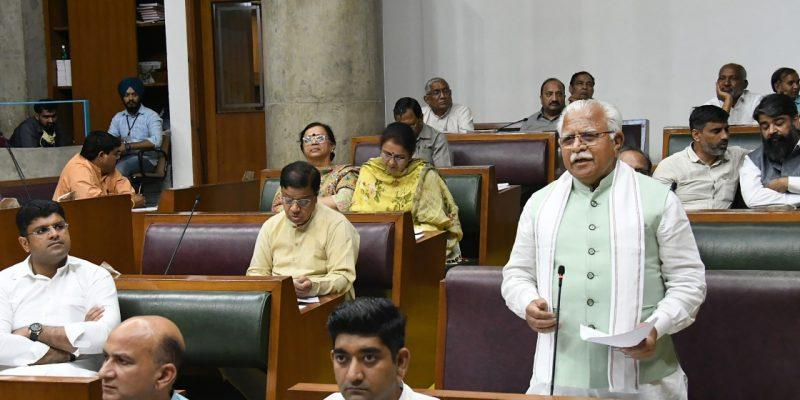Haryana Prevention of Unlawful Conversion of Religion Bill 2022, is now an Anti-Conversion Act issued in Haryana on 20th December, Tuesday.

This act seeks to prohibit religious conversion effected through misinterpretation, force, undue influence, coercion, allurement, marriage, or by any other fraudulent means making it an offense. It’s been eight months since the Haryana Prevention of Unlawful Conversion of Religion Bill was passed in the Haryana Assembly, and now after much discussion over the framework of the act, it has been issued to the public.
Who all are responsible?

The act proposes that (Sec 3)-
- No person shall convert or attempt to convert either directly or otherwise, any other person from one religion to another
- Abet or conspire such conversion through digital mode
- Conceal his religion with the intention to marry
The contravention of the provisions provided under Sec 3, clauses (A) & (B) of the act, is a punishable offense with an imprisonment term which shall not be less than one year and can even extend up to 5 years and shall also be liable to fine which shall not be less than 1 lac rupees.
The contravention of the provision under Sec 3, clause (C)of the act, shall be punishable for a term of a minimum of 3 years which may even extend up to 10 years, and shall also be liable to a fine which shall not be less than 3 lac rupees.
According to the law, it is necessary for the person who wants to convert to provide a declaration before conversion.
“Prior permission from the District Commissioner is necessary for both the person seeking to convert and the priest who will officiate the conversion. The priest will also have to provide a list of guests who are likely to attend the ceremony.”
In case, D.C finds the conversion unwilling even after investigation, on the part of the person being converted, the permission to the conversion will not be approved. If he finds the conversion willful, may issue a certificate stating his approval within the 3 months of the notice period.
Was this Act needed in Haryana?

This act was passed due to the rising cases of unlawful conversions and the numbers were pretty high in Haryana. According to the state government, there was no need for the act if there were just 2-3 incidents. But now that several incidents of forced religious conversion by way of coercion and allurements have come to light, this act is the need of the hour.
The act also elaborates on the provisions for the child born out of unlawful marriage. It says in such a marriage child has the legitimate right to inherit the property. Right to maintenance and expenses of the proceedings to the aggrieved while considering that person’s income and the income of the accused, as well as maintenance of the child till he is a minor “ in the best interest of the child” is also part of the act.
The constitution confers on each individual the Fundamental Right to profess, practice, and propagate his religion. But this right cannot be intended to construe a collective right to proselytize, for the right to freedom belongs equally to both the person converting and the individual sought to be converted. Still, there have been umpteen mass and individual conversions. Thus the act aims to prohibit obstruction of anybody’s Fundamental Rights. It provides greater punishment for such conversion with respect to Minor, Women, Scheduled Castes, and Scheduled Tribes.
Haryana, along with several other states has now legalized the anti-conversion law. In September, Karnataka also passed the law with much scrutiny from the opposition. Whether these laws are the protection of the rights of the people or the violation of the freedom given by the constitution, will be decided by how ethically the system follows its ‘statement of objects and reasons’, which it proposed in its initial draft.












